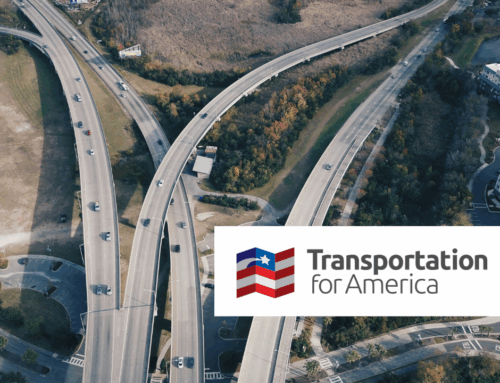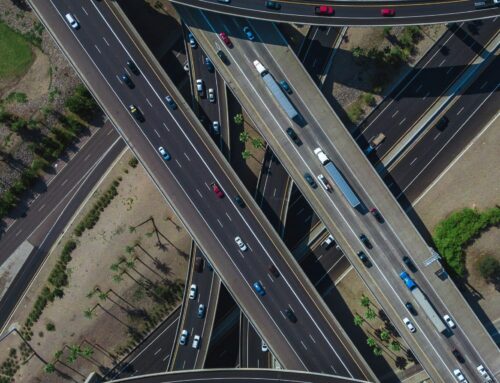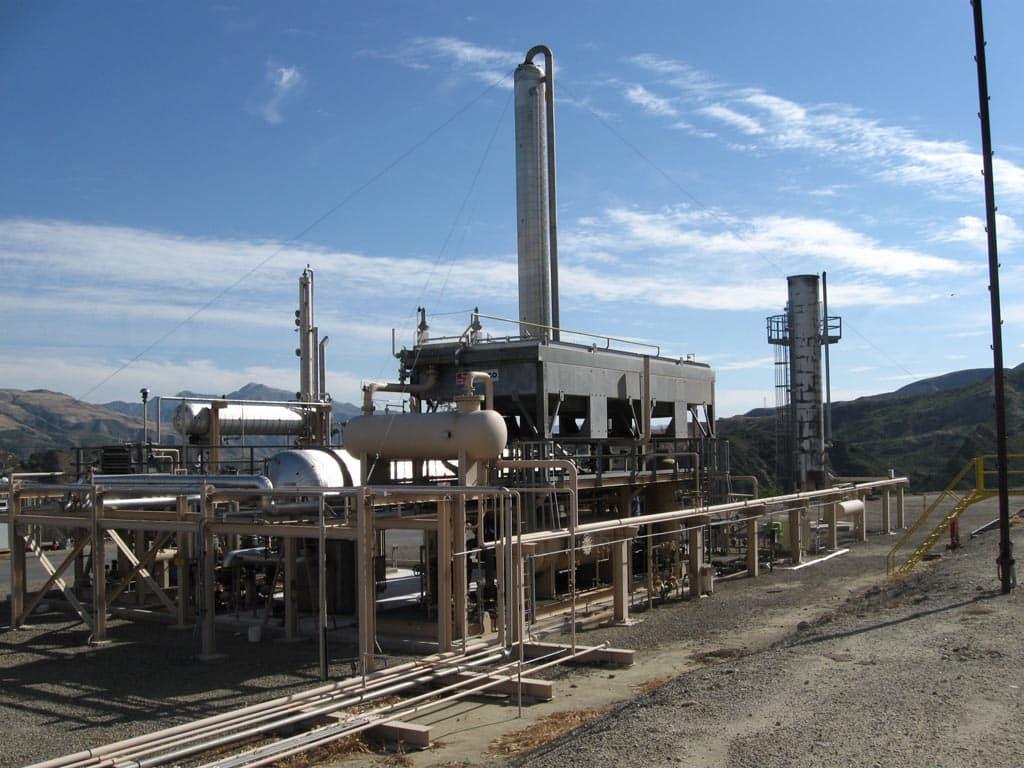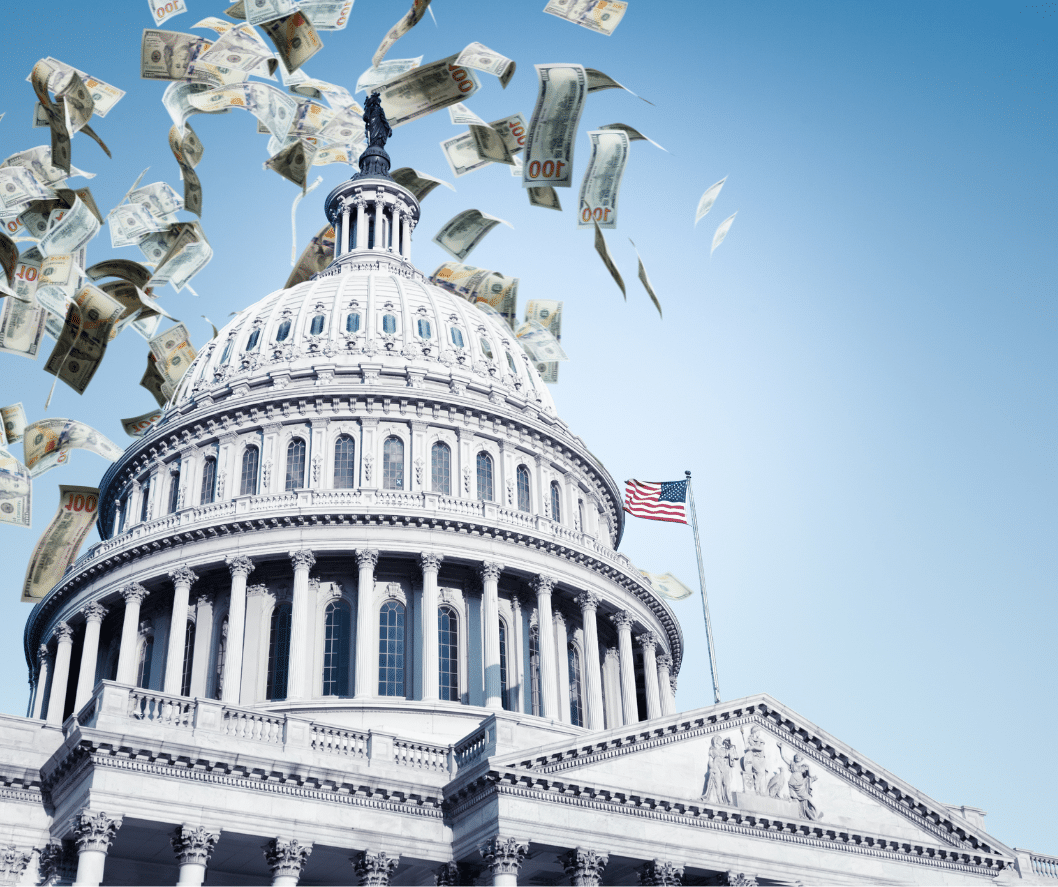The accounts used to pay for federal road construction and mass transit are going broke. And fast.
According to the President’s Office of Management and Budget (OMB), the Highway Trust Fund (HTF) will be in the red by as much as $4.3 billion by the end of fiscal year 2009, before the current transportation bill has expired. The Mass Transit Account has a little longer to live, but will also be running a negative balance in four or so years. This is, undoubtedly, an enormous problem that will have indescribable impact on how we get to work, school, and play. At a time when congestion is strangling our major cities and spreading to more places than ever before, our ability to deal with the problem is drying up.
We hate to say we told you so, but we told you so. Before the current transportation bill passed in 2005, several sources, including TCS, the U.S. Chamber of Commerce, and the Senate Finance Committee, all expressed grave concern that the level of funding the bill included would drive the HTF into the red. Congress’s response was to make the problem worse, adding 6,300 earmarks to the final bill, including nearly half-a-billion bucks for the now-infamous poster children of waste, Alaska’s Bridges to Nowhere. Congress went along its merry way, with visions of a rosier fiscal future dancing in their heads.
In the recent version of the transportation spending bill that recently passed the House, members of the subcommittee responsible for writing the legislation stated they are “greatly concerned” about the status of the HTF and “disappointed” that the President’s budget didn’t include any “serious proposals” to deal with the problem.
Well, there is blame enough to go around.
For starters, the President’s budget estimates a shortfall in the HTF of $800 million by FY09, which greatly underestimates the problem. And while it’s not up to the appropriations committee to propose or pass legislative fixes (in fact, they are forbidden from doing so), its deep concern for the state of the HTF was apparently not enough to stop them from allowing 1,400 congressional and administrative earmarks worth more than $2.2 billion in its bill (though not all of this was out of the HTF, since this bill also includes Housing and Urban Development). The Senate will surely want its share of the wealth, and taken together you can start to understand how big a problem this is.
It would be naïve, however, to assume that eliminating earmarks will solve the problems with the HTF. There is no guarantee that the money spent on earmarks wouldn’t be spent elsewhere, as it most likely would be. In so many ways, however, earmarks represent exactly what is ailing the HTF. They exhibit a lack of prioritization. Our nation’s congestion problems are real and getting worse. That affects your drive to work and businesses ability to get goods where they need to go. Yet Congress feels it worthwhile to provide $1.725 million for the Hudson Valley Welcome Center in Hyde Park, NY.
Earmarks also erode the effectiveness of the HTF by spreading a finite amount of money around to too many projects. There is no way every pipe dream project can be funded with current fiscal constraints.
The current level of earmarking given these realities also indicates that this Congress is either completely in denial of the problem or simply unable to cope with the difficult decisions that need to be made. And this is about more than just the HTF. Take the Farm Bill. Just today the House passed a virtual carbon copy of the bill passed in 2002, despite wide agreement that significant change is needed in our agriculture subsidy program. Perhaps even more striking is Congress’ inability to begin dealing with the largest parts of the budget, the solvency of Social Security and Medicare.
Everyone agrees Highway Trust Fund needs fixing, but our doubts are growing that this is the Congress to do the necessary heavy lifting. It means making decisions between increasing gas tax revenues (politically unpopular) or telling states to do with less (equally politically unpopular). But Congress’ failure to solve the tough issues of the day will make for a longer and more difficult commute when you leave work tonight.
For more information, contact Steve Ellis at (202)-546-8500 ext. 126 or steve [at] taxpayer.net










